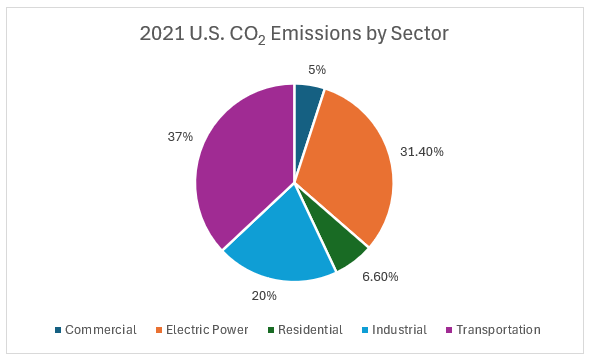How to Save Energy & Help the Environment
When it comes to helping the environment, small changes by individuals can add up to significant improvements for the planet.
Saving energy at home is one area where everyone can make a difference. From simple adjustments in daily routines to more significant lifestyle changes, learn how to save energy at home and how it can help the environment.
How does electricity affect the environment?
Electricity powers our lives so efficiently and effortlessly that we often lose focus of how it is generated and what affects that has on the environment.
The reality is that in 2022, the U.S. had the world’s second-most carbon dioxide (CO2)-emitting power sector. As a nation, we were responsible for 13% of the total global emissions from electricity generation that year. Much of these emissions came from fossil fuels like coal, natural gas, and petroleum.
Where do carbon emissions come from?
Fossil fuels are mostly made up of carbon and hydrogen. When fossil fuels burn, oxygen reacts with those elements to produce CO2 and water (H2O). CO2 is the most dangerous and prevalent greenhouse gas — a group of gases that absorb solar heat reflected by the earth’s surface, warming the atmosphere.
Other greenhouse gases include methane, nitrogen oxide and fluorinated gases. An increased amount of greenhouse gases in the atmosphere can produce rising temperatures, higher sea levels, abnormal or extreme weather and air pollution.
The latest data from the Energy Information Administration (EIA) shows that CO2 emissions come from five major sectors: transportation (37%), electric power (31.4%), industrial (20%), residential (6.6%) and commercial (5%).

Though residential usage makes up a relatively small portion of emissions, we’re still talking about over 300 million metric tons of CO2. Reducing emissions by any amount can make an impact.
Why is saving electricity important?
Because electricity generation produces a large amount of emissions and these emissions cause damage to the environment and climate, saving electricity is one way to minimize our impact on the planet. In addition to lowering carbon emissions, saving electricity can also have positive impacts on:
Air pollution
Ninety-nine percent of the global population currently breathes air with pollutants that exceed the World Health Organization’s (WHO) guideline limits. Most air pollution comes from energy use and production, which includes home electricity use.
Natural resources
It took millions of years to form the fossil fuel sources we use for energy production. They are non-renewable resources — when they’re gone, they’re gone.
Ecosystems
Saving energy helps reduce air and land pollution that causes an imbalance in natural eco-systems and can impact plant and animal life.
Your budget
As the supply of fossil fuel resources becomes scarcer, the cost of electricity will surely increase. Saving electricity at home can help you save money.
The electricity grid
Conserving energy lowers the demand for it, which keeps the electricity grid stable. This is especially helpful during peak usage periods like hot afternoons or cold nights.
What are some easy ways to save energy?
All of these benefits make saving energy a win-win endeavor. But people are busy and may not be able to devote a lot of time (or resources) to making energy-saving choices. With that in mind, here are some quick and easy ways to save energy:
- Turn off lights and screens when not in use.
- Unplug electronics and small appliances when not in use to avoid phantom load.
- Lower your water heater temperature to 120° (but not lower).
- Wash regular loads of clothing with cold water.
- Clean your clothes dryer’s lint trap after every load and throw a few clean tennis balls in to help clothes dry faster.
- Wait for a full load of dishes before running your dishwasher.
- Adjust your thermostat a few degrees higher in summer or lower in winter before you leave home.
- Keep your garage door closed.
More ways to save energy at home
If you’ve mastered the easy tips above, try some of these energy-saving tactics. They may take a little more time or resources, but they can help you lower your electricity usage:
- Insulate your walls, floors, and attic space to the recommended amount.
- Upgrade to LED lighting — a more efficient option than incandescent or CFL bulbs.
- Install a smart thermostat that can be programmed, learn your habits and comfort levels, and be controlled via your smart phone to optimize your usage.
- Seal air leaks around doors, windows, and ductwork to prevent energy waste.
- Upgrade windows to prevent heat loss in winter and avoid heat gain in summer.
- If you have a swimming pool, cover it with a solar blanket when it’s not in use.
- If you’re ready to replace an old appliance, choose an ENERGY STAR®-rated model.
Check out more energy-saving tips for every season here.
Conclusion
You’ve learned how electricity affects the environment, why saving energy is important and how to conserve energy at home. The only thing left to do is to put these energy-saving tips into practice and contribute to a cleaner, greener world!
Comments Off on How to Save Energy & Help the Environment


